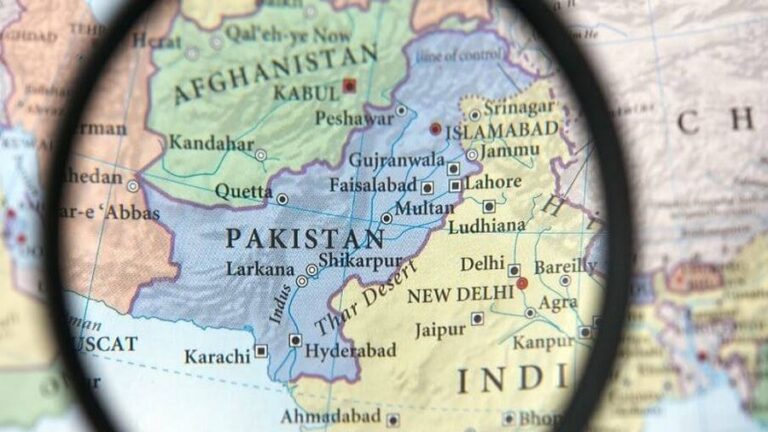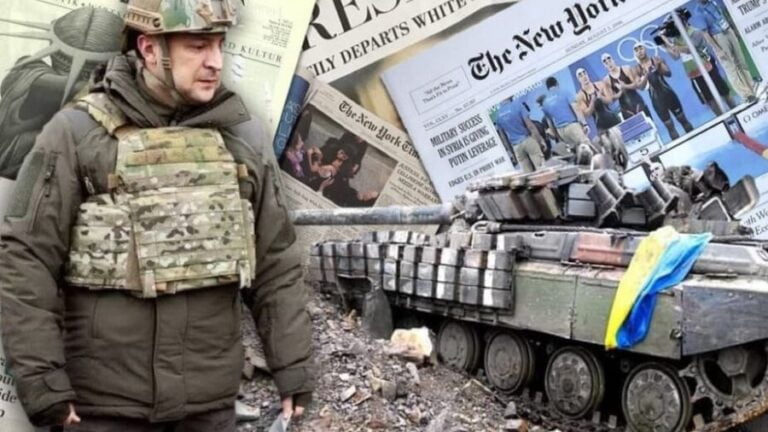IDLIB: Where Sectarian Wars, Proxy Wars and International Cooperation Collide
The battle for Idlib will likely be the most fraught of all remaining fights to liberate Syria.
Ankara has announced that as part of its rights and obligations, in line with the most recent Astana agreement, Turkey will be sending further troops into Syria’s fraught Idlib Governorate. According to Ankara, Turkish troops in Idlib will work along with long-time Turkish proxy forces in the governorate who tend to call themselves FSA, although as with all proxy forces in Syria, the names of any given set of militants is highly fluid.
Idlib is unique among the Governorates of the western half of Syria, insofar as it is the one part of the region which remains almost totally controlled by terrorist factions. What’s more is that as al-Qaeda and FSA terrorists have been shoved out of much of western and southern Syria, competing terrorist factions within Idlib, have turned on one another in what amounts to a civil war between terrorist factions, each vying for control of land, resources and international attention.
Added to this mix, the geographic location of Idlib makes it well placed to act as a kind of buffer zone against Kurdish attempts to annex or else dominate the northern frontier of Syria. Earlier this year, Kurdish groups in Syria confirmed their ambitions to create Kurdish enclaves which stretch along the Turkish border to the Mediterranean. Such a development, were it to come to fruition, would be equally opposed by both Turkey and Syria.
While much of Turkish President Recep Tayyip Erdogan’s rhetoric on his new operation in Idlib sounds markedly similar to that which he employed during the height of Operation Euphrates Shield, an illegal Turkish incursion into Syria designed to destabilise the Syrian government, the facts of Turkey’s current operation are greatly different, albeit in subtle yet profound ways. When it comes to testing Erdogan’s rhetoric against his foreign policies, one only needs to see how closely Turkey is currently cooperating with the Shi’a dominated government in Iraq, a country which is a close Iranian ally. Furthermore, Turkey and Iran are cooperating closely in Iraq and other areas concerning economic and security matters. If Erdogan was purely a Sunni extremist as some of his domestic rhetoric suggests, he would not be cooperating with Iran or Iraq, but he is. This reality speaks for itself: Erdogan is more pragmatic in his executions of policy than he is when describing them to his base at home.
First of all, while Euphrates Shield was illegal, openly anti-Syrian and for all intents and purposes serving the interests of both the US and Israel, Turkey’s current operations in Idlib are part of the legal framework of the Astana Agreements which were reached with Syria’s long time allies Russia and Iran. Furthermore, Damascus gave its approval to the recent Astana Agreement as it has done in respect of all previous such agreements.
Turkey has said openly and in some respects even pridefully, that its Idlib operation is being coordinated with Russia and Iran. Furthermore, Russian Aerospace Forces are working with Turkish troops on the ground against targets in the region.
The practical difference between the current Turkish operation and Euphrates Shield is that Turkey has swapped a dangerous and unrealistic goal of destabilising Syria through the use of proxy Sunni supremacist terrorists, for a realistic and legitimate goal of creating a buffer zone on the Syria-Turkey border which will contain the Syria based Kurdish YPG, an armed group which is allied with the Turkey based Kurdish terrorist organisation PKK.
Today, the Turkish President admitted that this is a major goal of his current operation in Syria. He said,
“YPG is a terrorist organization, which wants to create a terrorist corridor from Afrin to the Mediterranean Sea. We will not allow that and are forced to destroy this corridor. We do not want to seize these territories but we will ensure the security of our borders”.
With Russia acknwoelding that the YPG dominated US proxy force SDF is both colluding with and in other places failing to fight ISIS and with Iran being consummately opposed to the SDF: Turkey, Iran and Russia, along with Syria, all now have a common enemy in the form of the Kurdish led US proxy militia SDF. In this sense, one ought to realistically see Turkey’s new operation in Idlib as a preemptive and possibly soon, an active battle between Turkish and Turkish proxies, against Kurdish positions in Syria, all being done with the direct approval of Russia and Iran and also the tacit approval of Syria.
Whether so-called FSA fighters who in Idlib are little more than mercenaries working for Turkey, actually fight al-Qaeda groups or not, remains to be seen. As it is, Idlib is already a blood bath whose contents are a mixture of blood spilt in a manifold conflict between rival elements of al-Qaeda, the FSA and armed Muslim Brotherhood factions. Put simply, there are no ‘good guys’ in Idlib and haven’t been for some time.
The fact remains that it will not be until the kind of Russo-Syrian cooperation that has been successful in Aleppo, Homs, Hama and Deir-ez-Zor, commences in Idlib, that the world will witness a meaningful liberation of Idlib. Furthermore, because of the manifold nature of the sectarian conflict between terrorist groups in Idlib, there is increasingly little to liberate at this point in time. Here, one can point to Syria and Russia playing a long game, waiting for others, including Turkey, to weed out various factions in order to make the fighting to liberate Idlib more straightforward at a later (but not that much later) date.
Another important factor to remember is how meaningless the title FSA really is. Throughout Syria, various factions call themselves FSA simply to allude to the fact that they are jihadists who are not necessarily directly aligned with the command structure of al-Qaeda nor ISIS. That being said, many of the fighters between various groups are interchangeable.
Just as the US toys with various names for its jihadist proxies ranging from FSA to NSA (New Syrian Army), Turkey is playing the same game of misleading and ultimately inconsequential alphabet soup. What is important to remember is that on the whole, Turkish proxies in Idlib are little more than Turkish mercenaries. So long as Turkey provides the money and/or weapons, they will fight under Turkish orders and at present, in spite of the typical militant Sunni rhetoric that Erdogan offers to his domestic base, in reality. the Turks are going back into Idlib to create a buffer zone against the Kurds and this means, so too will their proxies/mercenaries.
There is always the chance that some factions of the Turkish proxies in Idlib will ‘go rogue’, perhaps even with the tacit consent of some Turkish commanders and align with al-Qaeda as they have done in the past. While this would be an objectively harmful thing, the fact remains that the scope of any such operation would be limited by the prevailing circumstances in Syria.
Everyone from elements of the US State Department to the leaders of France and Germany to the Turks themselves, to the Saudi Foreign Minister, now acknowledge that the Syrian government is not going to fall.
Instead of asking weather Erdogan will revert to his ‘old ways’, a more pertinent set of questions is as follows:
–Will Idlib become a second Golan Heights only substituting Israel for Turkey?
–Will Idlib fall to Kurdish militants who are on the whole, little more than US and by extrapolation, Israeli proxies?
–Will Idlib eventually be liberated by legitimate actors and returned to a part of a unitary Syria in line with Syria’s legal position and the stated aims of Russia and Iran?
The answers to the questions depend on first of all, how successful Turkey is at restraining Kurdish ambitions along the Syrian border and secondly, how committed all of the Astana parties are to respecting Syrian territorial unity.
The best outcome is the full restoration of Idlib under Syrian control. The worst that could happen is a perpetuation of the long time status quo of Idlib being a terrorist no-man’s land. As the US continues to be squeezed out of Syria, it is becoming increasingly unlikely that Washington or Tel Aviv will be able to fully get its hands on Idlib, not least because Turkey is now an adversary of both in all but name and right now Turkey is boss in Idlib, along with two other opponents of US ambitions against Syria, Russia and Iran.
By Adam Garrie
Source: The Duran







